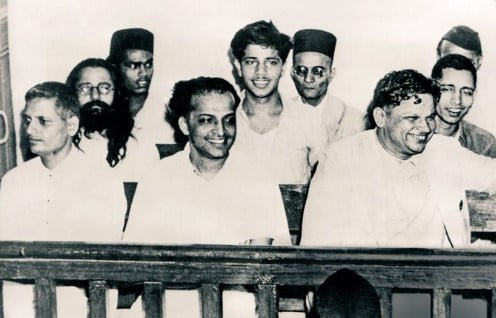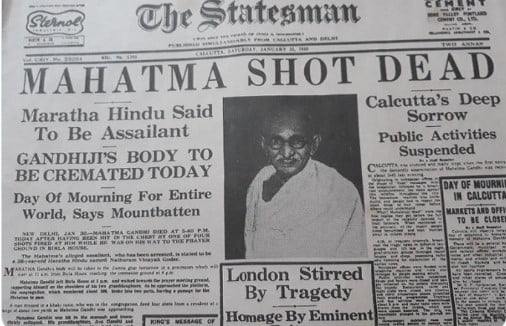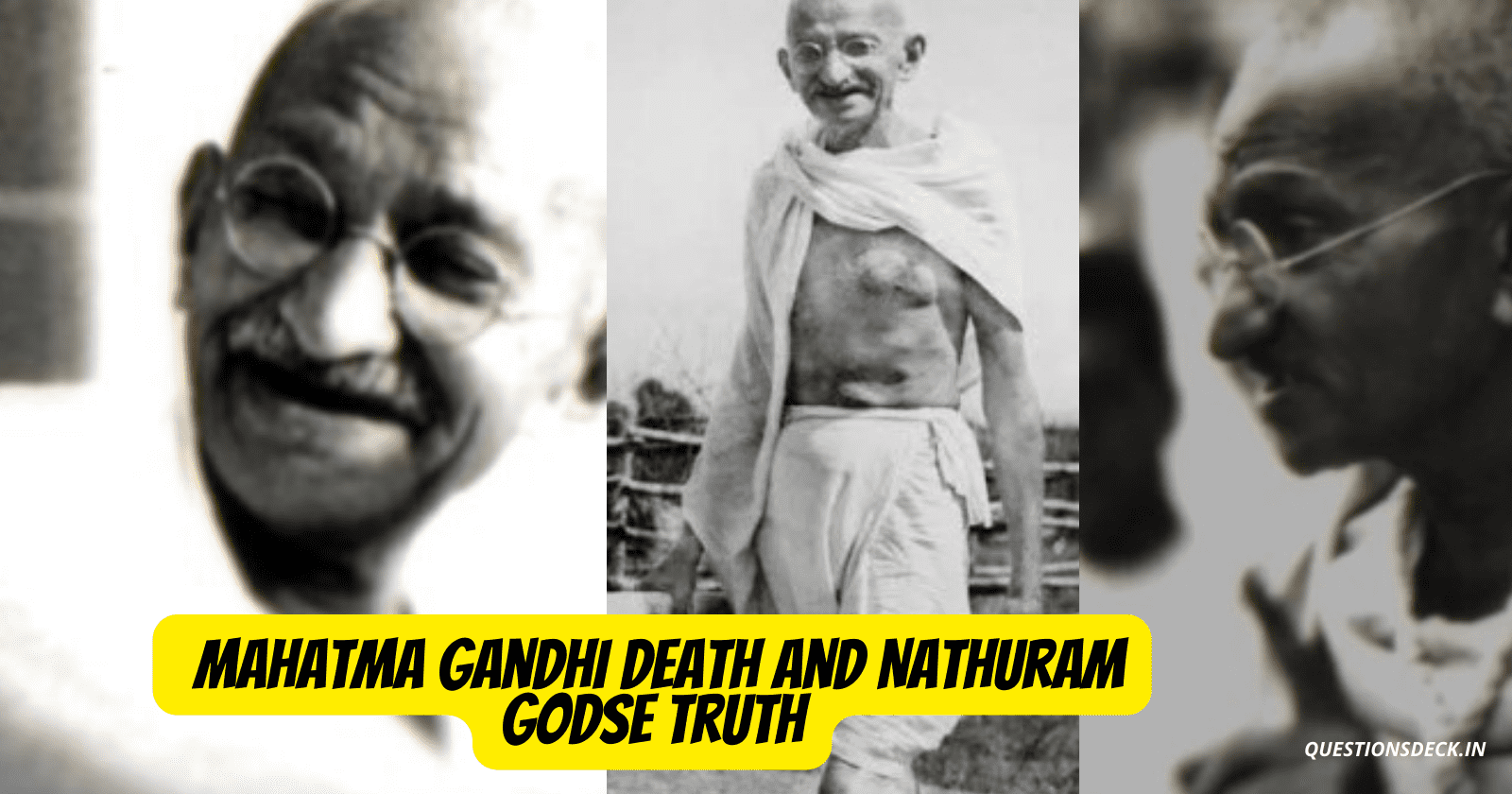Mahatma Gandhi Assassination: The Tragic End of a Great Leader
On January 30th, 1948, India lost its beloved leader, Mahatma Gandhi, to an assassin’s bullet. Gandhi, who was known for his nonviolent approach to independence and promoting peace, was shot while leading a prayer meeting in New Delhi. The assassin, Nathuram Godse, was a Hindu nationalist who disagreed with Gandhi’s views on religious tolerance and reconciliation. Despite the tight security measures, Godse was able to approach Gandhi and fire three shots at close range.
The great leader, who had dedicated his life to the service of humanity, passed away shortly after. The news of Gandhi’s assassination shocked the nation and sparked widespread mourning. The tragedy of Gandhi’s death marked the end of an era, but his teachings and legacy continue to inspire millions of people around the world.
Nathuram Godse’s Trial and Punishment for Assassinating Gandhi

Nathuram Godse, a Hindu nationalist, assassinated Gandhiji on January 30th, 1948. Godse was quickly arrested and put on trial for his crimes. The trial was highly publicized and widely followed by the Indian public, who was grieving the loss of Gandhi. The trial lasted for over two months, and Godse was found guilty of murder and sentenced to death by hanging.
Throughout the trial, Godse maintained that he assassinated Gandhi because he believed that the Indian leader’s policies favored India’s minority communities over its Hindu majority. He also felt that Gandhi was too lenient on India’s Muslim community and that this was causing harm to Hindu interests. Despite his beliefs, the court determined that Godse’s actions were unjustified and illegal.
After his sentence was carried out, Godse became a martyr for some in India’s far-right Hindu nationalist movement. However, for the majority of the Indian public, he remains a hated figure, remembered for his role in the assassination of one of India’s most beloved leaders. The legacy of Gandhi, on the other hand, has only continued to grow stronger over the years, with his message of nonviolence and unity continuing to inspire people around the world.
The Aftermath of Gandhi’s Death and its Impact on India

The death of Mahatma Gandhi on January 30, 1948, shook India to its core. He was assassinated by Nathuram Godse, a Hindu nationalist, while on his way to a prayer meeting in New Delhi.
Gandhi’s death was a turning point in India’s history as it not only marked the end of an era, but it also had a profound impact on the nation. In the aftermath of Gandhi’s death, India was left in a state of mourning, with millions of people paying their respects to the leader who had fought for independence, advocated for non-violence, and fought for unity and equality among all Indians.
The violence that followed Gandhi’s death was a testament to the urgency for continued peace, and India’s leaders, including Jawaharlal Nehru, worked tirelessly to ensure that Gandhi’s message of non-violence and unity would endure. Today, India continues to honor Gandhi’s legacy through his teachings, his monuments, and by celebrating Gandhi Jayanti as a national holiday.
Remembering Gandhi: A Tribute to the Father of the Nation

Mahatma Gandhi, fondly known as the “Father of the Nation,” was a man of great morals and values. He devoted his entire life to the freedom and independence of India, using nonviolent civil disobedience as his weapon of choice. On January 30, 1948, Gandhi’s journey came to a tragic end when he was assassinated by Nathuram Godse. Despite his death, Gandhi’s legacy continues to live on, and he remains a symbol of hope and inspiration for people around the world.
To this day, Gandhi’s birthday is celebrated as a national holiday in India and is remembered as a day of peace, nonviolence, and reflection. On this day, people pay tribute to Gandhi by visiting his memorial, lighting candles, and spreading messages of love and unity. In short, Gandhi’s teachings and ideals continue to be relevant and impactful, and his death remains a turning point in the history of India.
A Short tribute to Mahatma Gandhi ji on his death anniversary
Gandhi, the man with a heart of gold
Questionsdeck
Fighting for justice, truth to uphold
Against oppression, his spirit did soar
Breaking the chains, that kept India poor.
With peaceful ways, he led the fight
Against the British, with all his might
No violence, no anger in his heart
His message, simple, love from the start.
As we remember, his death today
We honor his struggles, in every way
For freedom, for what is right
His legacy, a shining beacon of light.
With tolerance, peace, and love as our guide
We strive to follow, in Gandhi’s stride
And though he’s gone, his spirit still shines
His message, still relevant, through the times.
So let us remember, this solemn day
Gandhi’s struggles, in every way
For freedom, for what is right
His legacy, a shining beacon of light.
Gandhi’s Legacy and its Relevance in Modern India
After Gandhi’s death, his legacy continued to influence modern India and the world. His teachings on peace and non-violence have inspired numerous leaders and movements, including the American Civil Rights Movement led by Martin Luther King Jr. Gandhi’s principles of self-sufficiency, such as spinning cloth on a charkha and growing one’s own food, are still relevant today as people seek to live more sustainably and reduce their dependence on external sources.
Gandhi’s life and legacy continue to be celebrate in India and around the world, reminding us of the importance of his message of peace, love, and justice.
The Significance of Gandhi’s Non-violent Movement in Today’s World
Mahatma Gandhi’s philosophy of non-violence and peace still resonates with people around the world today. His belief in the power of non-violent resistance as a means to achieve political and social change has inspired many to follow in his footsteps. Despite facing opposition and violence, Gandhi remained steadfast in his commitment to non-violence, leading peaceful campaigns that eventually led to India’s independence from British rule.
In today’s world, where conflict and violence continue to be prevalent, Gandhi’s legacy serves as a reminder of the importance of peaceful resolution and understanding. The significance of his non-violent movement is visible in modern-day activism, where protestors turn to peaceful demonstrations as a means of bringing about change. Gandhi’s teachings continue to inspire people to stand up for what they believe in while promoting peace and equality.
The Life and Teachings of Mahatma Gandhi: A Continued Inspiration

Mahatma Gandhi lived a life dedicated to the pursuit of justice and peace through nonviolent resistance. Born in 1869 in Porbandar, India, Gandhi was a man of great wisdom and determination, and his teachings continue to inspire people all over the world.
Throughout his life, Gandhi led various movements to fight for India’s independence from British rule, using nonviolent means such as peaceful protests and civil disobedience. His philosophy of nonviolence was in his strong belief in the power of love and compassion to bring about change. Today, Gandhi’s legacy remains an enduring source of inspiration for those seeking to create a more just and equitable world.
His life and teachings remind us of the importance of standing up for what is right, even in the face of adversity, and of finding common ground with those who hold differing views. The life and teachings of Gandhi will continue to inspire future generations to strive for peace and justice in the world.
Mahatma Gandhi’s Contribution to India’s Freedom Struggle
Gandhi ji played a pivotal role in India’s struggle for independence. With his philosophy of non-violence and civil disobedience, he inspired millions of Indians to fight against British rule peacefully.
Gandhi’s leadership and tireless efforts to bring about change through peaceful means sparked a nationwide movement, which ultimately led to India’s independence in 1947. He remains a symbol of hope and inspiration for people around the world who seek justice and freedom. The legacy of Gandhi’s selfless and visionary leadership continues to influence political and social movements worldwide.
The Importance of Gandhi’s Message of Peace and Tolerance Today
Gandhiji gets remember as a symbol of peace and non-violence. His teachings of love, compassion and tolerance continue to inspire people around the world even today. Gandhi’s message of peace and tolerance is more relevant today than ever, as the world continues to struggle with conflict, hatred and division.
His philosophy of non-violent resistance served as a powerful tool for India’s freedom struggle and continues to influence movements for justice and equality across the world. Through his words and actions, Gandhi showed the world the power of non-violent resistance and the importance of living a life of love, service and compassion. He remains a shining example of the power of peace and a source of inspiration for generations to come.

